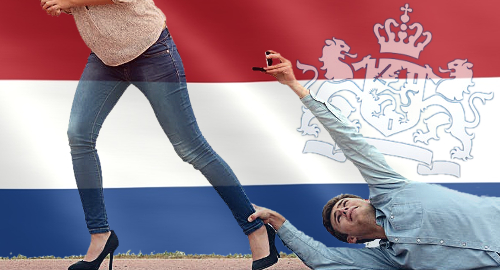 The Netherlands appears to be expecting far fewer online gambling license applicants than previously stated, while rule-breaking ‘cowboys’ may have to spend a little longer in the penalty box.
The Netherlands appears to be expecting far fewer online gambling license applicants than previously stated, while rule-breaking ‘cowboys’ may have to spend a little longer in the penalty box.
This week, the Dutch government released a draft General Administrative Order for implementing the Remote Gaming Act the legislature approved one year ago. The draft will now be pored over by legislators for further tweaking.
Minister for Justice and Security Sander Dekker also sent letters to both legislative chambers in response to suggestions for further tweaks to policies on gambling advertising, responsible gambling and the ‘time out’ that will be imposed on online ‘cowboys’ who didn’t heed the Kannspelautoriteit (KSA) gambling regulator’s warning shots.
30-MONTH TIME OUT FOR COWBOYS
Regarding said cowboys, the original idea was for these rogues to demonstrate that they’d stopped actively targeting the Dutch market two years before submitting an application to participate in the new regulated market. Dekker said discussions with the KSA indicate that there might be merit in adding six months to this ‘cooling off’ period.
The original plan was for the Act to take effect on July 1, 2020, after which the KSA would begin accepting license applications ahead of the market’s launch on January 1, 2021. But last November, those timelines were pushed back six months, and the KSA evidently doesn’t see why rogues should benefit from the government’s inability to turn in its homework on time.
WHERE’D ALL THE APPLICANTS GO?
A study prepared for the government by Sira Consulting estimates there will eventually be 68 online licensees, of which 41 will be international firms. This doesn’t quite square with the KSA’s statement last summer that it had received 183 expressions of interest from potential applicants, 89 of which were internationals.
Another section of the Sira report uses a test in which the KSA receives 90 applications “and 25% of them ultimately do not receive a permit.” Which kinda suggests that KSA boss René Jansen wasn’t kidding last December when he warned applicants that the process would make a lube-free prostate exam seem pleasant (we’re paraphrasing).
Anyway, the KSA plans to issue five-year licenses that will permit online sports betting, race betting, casino games and poker, but online lotteries won’t be available to private operators. Licensees will pay €800k in ‘compliance costs’ upfront, plus another €800k per year, along with the already settled 29% tax on gaming revenue.
Licensees won’t have to establish an office in the Netherlands if they already have a presence in the European Union or European Economic Area, although they will be “obliged to place a control database” in the country. Licensees will also need to have a “representative” in the country “for the effective development and implementation of the addiction prevention policy.”
ADVERTISING
The current plan is to prohibit all broadcast gambling advertising between 6am and 9pm, although lotteries will be permitted to start running promos at 7pm. Gambling ads must also not feature endorsements from influencers and other role models “who have a substantial reach among minors” and young adults.
Dekker pushed back against legislators’ calls for a total ad ban, saying “consumers must be able to take note of the legal offer of remote games of chance” if the government wants to tempt a significant number of them away from internationally licensed gambling sites.
Online operators will be prohibited from promoting any other type of product on their website or app because “the gaming interface is entirely devoted to remote gaming; no other products or services are shown in terms of both offers and advertisements.”
There apparently was some confusion over the prohibition of live/in-play betting during sports matches, but the document says this “does not preclude the general promotion of live bets to increase the name recognition of that license holder.”
So live bet promotion okay, match-specific live bet promotion during a match not okay, although there’s an exception for operators who livestream matches on their websites or apps.
RED CARD ON RED CARD BETTING
Betting operators will be prohibited from offering bets on events that are generally more subject to manipulation, defined as “moments that often do not have a major effect on the outcome of the game, and which a player can easily influence as desired,” including ‘negative moments’ such as yellow or red cards in football or a first penalty in hockey.
Betting operators will also have to steer clear of youth and amateur sports events. eSports betting won’t be allowed, at least not until the games are organized under sports bodies recognized by traditional Dutch sports organizations. The full list of prohibited markets will be released later following consultations with Dutch sports bodies.
MONEY AND FREE MONEY
Operators will be prohibited from allowing customers to wager on credit but this won’t prevent customers from funding their accounts with credit cards.
Bonus offers will be permitted but bonuses can’t be offered to any customer who “took an intervention measure within the framework of the staged prevention policy.” The length of the period in which bonuses can’t be offered to these customers will vary depending on what level of intervention the customer chose to enact (deposit limits, time limits, total exclusion, etc.).
Bonuses can’t be “tailored to the individual playing behavior of a player” in order to “protect the player against undue participation.” Bonuses also can’t “incite excessive playing behavior and may not be offered, for example, because the player has recently suffered a major loss.”
Bear in mind that all of the above is subject to change once Dutch legislators have their assistants read the 155-page regulatory behemoth and offer their summaries.






